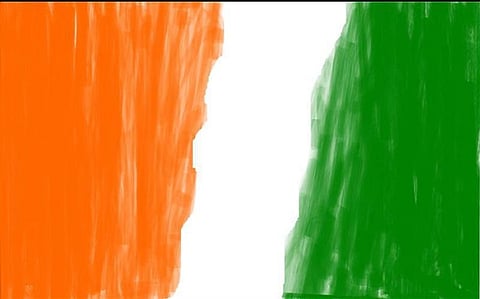
- Home
- NewsGram USA
- India
- न्यूजग्राम
- World
- Politics
- Opinion
- Entertainment
- On Ground
- Culture
- Lifestyle
- Economy
- Sports
- Sp. Coverage
- Misc.
- NewsGram Exclusive
- Jobs / Internships
- Interview

August 15, 2017: Today India celebrates its 71st Independence Day. In 1947, India became a sovereign nation independent of foreign rule, which came at the cost of a partition.
However, in these 71 years, India has come a long way to become a reputable nation in the international standings.
These ten events that happened in the past changed the country forever:
1. The Indo-Sino war of 1962:
The 1962 war with China resulted in a humiliating defeat for India. While India was trying to stand on its own feet, independent from the foreigners, the savage offense from China was a blow to India's confidence. The communist China attacked India on 20th October 1962 in Ladakh. Some say the war emerged out of nowhere. India did not see it coming, and was not prepared for it. The war, however, created animosity between two neighbors who are today the regional powers in the continent.
2. The Indo-Pak war of 1971:
India and Pakistan have been at war since the partition. The 1971 war between the two countries lasted just 13 days, but a major event of history was written. Bangladesh was liberated from Pakistan and became an independent nation. With this creation, the geopolitics of the Indian subcontinent changed forever. A buffer zone in the form of Bangladesh had emerged. Further, the dispute of Teesta river was a continual issue until recently.
3. The National Emergency of 1975:
Indira Gandhi government declared the National Emergency in 1975. The fundamental rights of the people and the constitution became worthless. Liberty was erased from the lives of the citizens. All in all, it was an attack on the very democracy of India. Many people were put behind bars and opposition was totally shut off.
4. Anti-Sikh Riots in 1984:
The Khalistani militants who were demanding a separate state were terminated by the government of India as part of the Operation Bluestar. Indira Gandhi had ordered an attack on a militant group hiding in Golden Temple, Amritsar which is considered the Holiest place for Sikhs. What followed was the assassination of Indira Gandhi by two of her Sikh bodyguards in 1984. The agitated public thus initiated a revenge against innocent Sikhs. In Delhi alone, 2,733 Sikhs were killed. This incident still influences the political atmosphere of Punjab.
5. The VP Singh Mandal Commission:
After independence, the scheduled castes and tribes were recognized as in dire need of social welfare and opportunity to equality. But the Other Backward Classes (OBC) were not involved. It was in 1990 when PM VP Singh declared that the Mandal Commission report, submitted in 1980, was accepted. It changed the phase of many spheres of citizen lives. Education universities were flooded by young people who sought retributive justice. Many enjoyed prosperity and better standards of living.
6. Liberalization in India:
The Liberalization policy of 1991 was presented by Finance Minister Manmohan Singh. It proved to be the most historic policy in the country's legacy. Economic reforms were introduced in the country. India was further integrated with global markets and finance. This led to India enjoying a massive rate of progress.
7. 1992 Demolition of Babri Masjid:
Hindutva ideology possessed people destroyed the Babri Masjid upon learning that four hundred years ago a Muslim ruler had destroyed the Ram Temple where the Lord was born. Hindus demanded a Ram temple be built. This case became a famous dispute between two religions that once coexisted peacefully in one nation. It also influences the politics of the country today.
8. Gujarat Riots 2002:
A train was set ablaze on fire in a conspiracy. The train was returning from Ayodhya to Gujarat and was carrying Hindus. In retaliation, hundreds of Muslims were killed. The Chief Minister of the state at that time was Narendra Modi, who is the current Prime Minister of India. He came under a lot of fire for the inability to control the situation.
9. Mumbai Terror 2008:
Popularly referred to as the 26/11, this was the worst attack on the Indian soil. It revealed the loopholes in security arrangements of India and thus improved army and weaponry.
10. 2014 PM Elections:
The 2014 elections shocked Congress and their supporters. For the first time in the country, a party other than Congress received a majority in the Lok Sabha. The whole status quo of the country trembled. The party which is communal in nature was now at power.
– prepared by Saksham Narula of NewsGram. Twitter: @Saksham2394
NewsGram is a Chicago-based non-profit media organization. We depend upon support from our readers to maintain our objective reporting. Show your support by Donating to NewsGram. Donations to NewsGram are tax-exempt.
Click here– www.newsgram.com/donate
